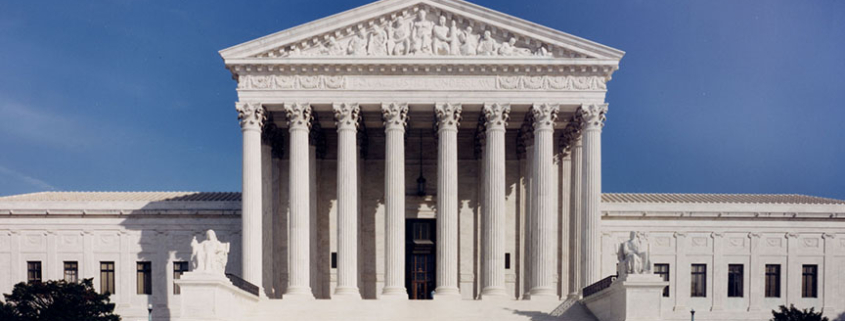Justice Breyer Announces Retirement. Now What?


Last week, Justice Stephen Breyer (pictured) announced that he will retire from the Supreme Court of the United States. Justice Breyer took the bench in 1994. He has consistently opposed the right to life in the womb — and even halfway outside of it, as the author of the Stenberg v. Carhart opinion supporting partial-birth abortion. (That decision was thankfully reversed seven years later in Gonzales v. Carhart, over Justice Breyer’s dissent.)
The Timing: Justice Breyer’s retirement is effective at the end of the Supreme Court term, which is typically in June. That means he will cast a vote in Dobbs v. JWHO, which pundits on both sides of the aisle predict will overturn Roe v. Wade. It also means that confirmation hearings for a replacement Justice can occur before the 2022 midterm elections. Democrats have the narrowest of majorities in the Senate (50-50, with Vice President Harris casting the tie-breaking vote).
The Stakes: President Biden is, of course, expected to nominate a strongly pro-abortion Justice. Even if he personally wished to be more moderate, the abortion-industry-funded Senators in his party would not accept anything less. Replacing one pro-abortion Justice with another pro-abortion Justice does not do anything to tilt the balance of the Court in the short term. However, nominating a young Justice will give the dying abortion ideology a voice on the Court for decades after Roe‘s reversal.
A Promise to Make History: President Biden has vowed to nominate the first Black woman to the Supreme Court. Strategically, there is a clear parallel to the nomination of Justice Amy Coney Barrett in 2020. When abortion advocates argued that women need abortion to succeed in a man’s world, we pushed for a pro-life woman on the Supreme Court to refute them. Justice Clarence Thomas, currently the only Black Justice on the Supreme Court, has boldly used his platform to condemn abortion’s eugenicist roots and devastating impact on communities of color; it’s only natural that abortion supporters now want a Black Justice to try to counter him. This in no way diminishes the legal qualifications of the eventual nominee. We can celebrate the nomination of a Black woman to the highest court in the land as an important step toward equal opportunity in the legal profession, even as we strongly disagree with that nominee’s position on the right to life. (In the long run, a more racially diverse bench and bar will likely benefit babies, as Gallup polls consistently find that non-White Americans oppose abortion more than White Americans do.)
The Possible Nominees: It’s mostly speculation at this point, but a few names are high on legal journalists’ unofficial shortlists. They include Judge Ketanji Brown Jackson of the U.S. Court of Appeals for the District of Columbia, Justice Leondra Kruger of the California Supreme Court, and Judge J. Michelle Childs of the U.S. District Court for the District of South Carolina.




“Democrats have the narrowest of majorities in the Senate (50-50, with Vice President Harris casting the tie-breaking vote).”
The last previous Supreme Court nomination by a Dem president did not come to a vote. But If it had come to a vote, wouldn’t at least a handful of R senators have followed the traditional philosophy of “As long as the the nominee is qualified, give the president what he wants”? And this nomination will come to a vote; and won’t at least a handful of R senators follow that philosophy this time?